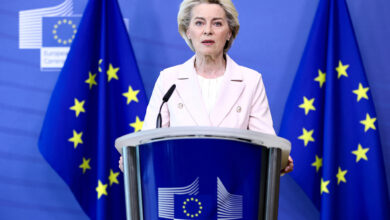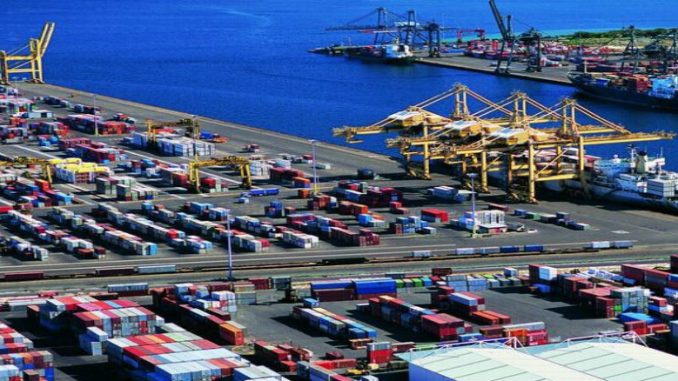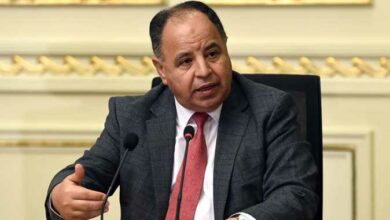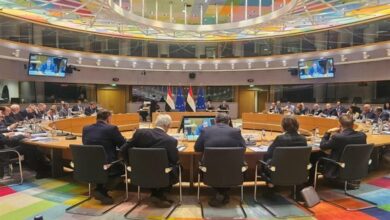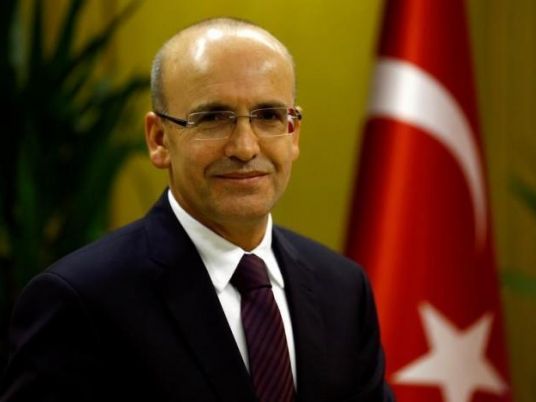
Turkey remains committed to closer ties with the European Union despite strains in the relationship, and wants to deepen a customs union to become the bloc's third largest trade partner, Deputy Prime Minister Mehmet Simsek said in an interview.
Turkey's relations with Europe have soured over demands it amend its anti-terrorism laws on human rights grounds under a deal to curb migration, prompting President Tayyip Erdogan last month to angrily warn: "we're going our way, you go yours".
Its decade-long efforts to join the EU have meanwhile been dragged into Britain's acrimonious debate over exiting the bloc, reinforcing the view of some Turks that Brussels was never serious about Turkish membership in the first place.
Countering warnings from Britain's "Out" campaign of dire consequences if the largely Muslim nation of 78 million joins, Prime Minister David Cameron, once a staunch advocate of Turkish accession, joked that it did not look as if it would happen until the year 3000.
"Despite all the noise, I think it is in our interests to remain anchored to Europe," Simsek told Reuters late on Wednesday in an interview in his office in Ankara, when asked about a possible "Brexit".
"From our perspective, we see Europe as a source of inspiration, as a reference point when it comes to strengthening the rule of law, enhancing standards of democracy … and I don’t see a substitute to the EU in Turkey’s near geography."
But he described as "unfair" the EU's insistence that Turkey soften its anti-terrorism laws to win visa-free travel, part of a wider deal on migration which has helped stem the flow of illegal migrants via Turkey to European shores.
Rights groups say Turkey has used the laws to silence dissent, including detaining journalists and academics critical of the government. Ankara insists they are essential as it battles Kurdish and Islamic State militants.
"Our European partners should understand us," Simsek said.
Turkey began EU accession talks in 2005 but has made scant progress despite an initial burst of reforms. Many EU states are not eager to see such a large, mostly Muslim country as a member, and are concerned that Ankara's record on basic freedoms has gone into reverse in recent years.
Simsek said economic ties were already much deeper than many realized, with 70-80 percent of foreign direct investment into Turkey coming from the EU, and that there was "political momentum" after high-level discussions in April to widen a 20-year customs union to cover services and agriculture.
"The EU is currently doing the impact analysis, and we are doing the impact analysis, and we're hoping that at the latest some time in the beginning of 2017 negotiations could start in earnest," Simsek said.
A deal could "easily double" bilateral trade of around $160 billion a year, he said, making Turkey one of the bloc's top three trading partners alongside the United States and China.
Halting progress on reforms
European scepticism over Turkey's EU bid has been fueled by the tightening grip of Erdogan, who wants constitutional change to replace a parliamentary democracy with a powerful presidency, a move opponents fear will bring greater authoritarianism.
Simsek, a former Wall Street banker and ex-finance minister, said such change would bring greater stability to a country with a history, until 2001, of short-lived coalition governments, military coups and financial crises.
"In my view, a presidential system with the right checks and balances would serve this country better than a parliamentary system," he said, adding the debate had wrongly become about personality. "We should focus on the merits of the system."
Simsek's reappointment last month reassured investors who see him as one of few reformers in a new government dominated by allies of Erdogan, economic populists who champion consumption-led growth over structural reforms to boost productivity and savings.
But Simsek, who was formerly in overall charge of the economy, has had his powers curtailed, continuing to oversee the Treasury and central bank but not the regulation of commercial lenders or the capital markets, raising questions about his ability to push ahead with the reform agenda.
He dismissed such concerns, saying progress was being quietly made. A major bill on enhancing the investment climate would be discussed in parliament in the coming weeks, judicial reform to speed up the courts would be effective by next month, and new rules for part-time workers to improve labor market flexibility had already been approved, he said.
He acknowledged growth was too heavily driven by domestic consumption, but pointed to Turkey's strong public finances, a downward trend in inflation and the creation of more than a million jobs over the past 12 months.
"The performance has not been bad … Let's face it, growth is a scarce thing in today's world," he said. "Turkey is the only sizeable country in this neighborhood that actually could provide the EU with some dynamism."

